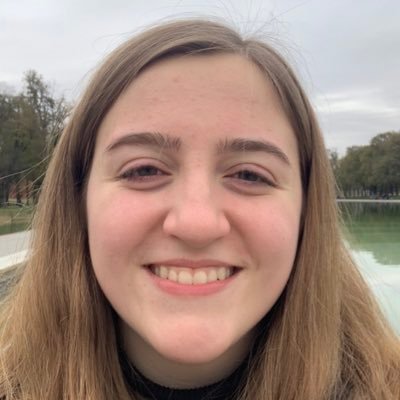The Week that Was: All of Lawfare in One Post
Your weekly summary of everything on the site.
Published by The Lawfare Institute
in Cooperation With

Lawfare celebrated its tenth anniversary on September 1. Benjamin Wittes reflected on the site’s history and encouraged readers to consider donating for the occasion.
News broke last weekend that Director of National Intelligence John Ratcliffe will no longer allow in-person intelligence briefings to Congress on election security matters. Ashley Deeks argued that the decision restricts critical explanation from the intelligence community and defended the importance of reason-giving in the government, even if done in secret. Jen Patja Howell shared an episode of the Lawfare Podcast featuring a conversation with Benjamin Wittes, David Priess and Margaret Taylor about the implications of Ratcliffe’s rollback:
With the U.S. general election on the horizon, Lawfare dissected challenges that will face the American democratic system in the coming months. Tait Anderson, Chelsey Davidson, Andrew Freiwald, Michael Jacobs, Jenny Liu and Kimberly Valladares explained why Iowa may struggle in the general election to replicate the voter turnout from its June primary. Axel Hufford took a deep dive into the U.S. Postal Service’s current difficulties and clarified how voters can ensure their ballots arrive on time. And Howell shared an episode of the Lawfare Podcast covering election anxieties and the USPS with Kevin Kosar of AEI and Anne Joseph O’Connell of Stanford Law School:
Quinta Jurecic and Jacob Schulz argued that political norms against posting manipulated media are necessary to deter lawmakers from posting doctored photos and videos.
Todd Carney, Samantha Fry, Quinta Jurecic, Jacob Schulz, Tia Sewell, Margaret Taylor and Benjamin Wittes finalized their collusion reading diary. The piece is a comprehensive summary of the Senate Intelligence Committee’s 966-page report on Russian interference and Trump campaign engagement withe the Russians during the 2016 presidential election and before.
Tia Sewell shared the D.C. Circuit’s per curiam ruling denying Michael Flynn’s petition to immediately dismiss his criminal case.
Elliot Setzer shared the D.C. Circuit’s divided panel ruling that the House of Representatives cannot seek judicial enforcement of its subpoenas against Don McGahn. Jonathan Shaub criticized the McGahn decision and argued that the court ignored the history of oversight and need for judicial review in its ruling.
Howell shared an episode of The Lawfare Podcast covering the D.C. Circuit’s big week, with rundowns of both the Flynn case and McGahn case:
Alan Rozenshtein criticized Attorney General Bill Barr’s recent removal of Brad Wiegmann from his role as deputy assistant attorney general for national security, in which capacity he ran the national security division's law and policy office.
Zachary Price argued that Congress should capitalize on its broad authority to structure the military and national security bureaucracy in order to check the president’s war powers.
Howell shared an episode of The Lawfare Podcast about the president’s authority to unilaterally wage trade wars. The conversation included Lawfare’s Scott R. Anderson, University of Miami law professor Kathleen Claussen and Vanderbilt law professor Timothy Meyer:
Scott R. Anderson argued that the restrictions on political speech which the State Department imposes on its overseas personnel are potentially unconstitutional.
Andrew Mines discussed how the coronavirus is impacting American jihadist travelers.
Abdul Sayed explained how the Islamic State in Khorasan Province and its newly appointed leader pose an enduring threat to the security and stability of Afghanistan.
Bobby Chesney and Steve Vladeck shared an episode of the National Security Law Podcast entitled, “What Would Robert Jackson Do?” They discussed the D.C. Circuit’s recent denial of Due Process rights to a Guantanamo prisoner, the Hatch Act and the increasing prevalence of deep fakes in political culture:
Shira Anderson and Sean Mirski examined Beijing’s possible responses to coronavirus-related lawsuits against China.
Jordan Schneider shared the 100th episode of the ChinaTalk podcast. He sat down with Tanner Greer of Scholarstage to discuss President Xi’s ideology, why it's worth studying ancient Chinese history and Mormon culture in China:
Masahiro Kurosaki discussed how a shifting U.S.-Japan alliance may alter the dynamics of Japan’s doctrine of self-defense.
Elena Chachko shared her essay about Israel’s cyber defense architecture. In it, she examines recent reforms in Israel’s government, such as the establishment of a new civilian national security agency, and argues that they are harmful to civil liberties and private sector autonomy.
Tia Sewell posted procedures released by the Office of the Director of National Intelligence governing foreign surveillance and intelligence information collection.
Mailyn Fidler analyzed 14 municipal efforts in the U.S. to establish procedures for deciding when and how police can use new technologies to surveil local residents. Then she joined Lily Liu in explaining why surveillance ordinances have stalled in many cities.
Elliot Setzer posted the U.S. Ninth Circuit Court of Appeals decision holding that the National Security Agency’s bulk collection of Americans’ phone records was illegal.
Howell also shared this week’s edition of the "Arbiters of Truth" series on the Lawfare Podcast. The episode features an interview with Alissa Starzak, the head of public policy at Cloudflare, on the company’s decision to pull its services from websites hosting extremist, violent content:
Nicol Turner Lee and Darrell West shared the latest episode of TechTank featuring an interview with Congressman David Cicilline on why Congress needs to enact new legislation on the digital economy:
Bobby Chesney and Matthew Waxman announced their latest project, NSL Lectures, a series of video lectures on various national security law topics.
And Lester Munson shared the fortieth episode of the Fault Lines podcast. He hosted Jamie Fly, former president of Radio Free Europe/Radio Liberty, to discuss why his employment there came abruptly to an end:
And that was the week that was.





